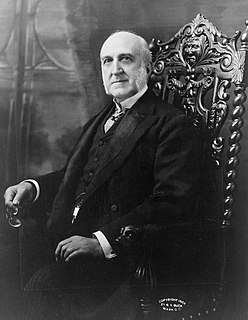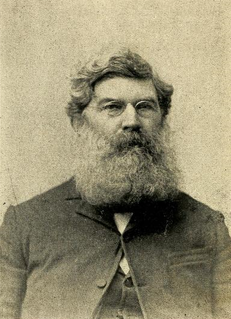A Quote by Jim Cymbala
The cross, as poignant as it is, is understandable from a human perspective: an innocent man was murdered by crooked politicians and religious leaders. But the empty tomb-- what can you say? Only a supernatural God could accomplish that.
Related Quotes
The most violent expression of God's wrath and justice is seen in the Cross. If ever a person had room to complain for injustice, it was Jesus. He was the only innocent man ever to be punished by God. If we stagger at the wrath of God, let us stagger at the Cross. Here is where our astonishment should be focused.
The problem of the novelist who wishes to write about a man's encounter with God is how he shall make the experience--which is both natural and supernatural--understandable, and credible, to his reader. In any age this would be a problem, but in our own, it is a well- nigh insurmountable one. Today's audience is one in which religious feeling has become, if not atrophied, at least vaporous and sentimental.
People say the cross is a sign of how much man is worth. That’s not true. The cross is a sign of how depraved we really are, that it took the death of God’s own Son. The only thing that could save a people like us was the death of God’s own Son under the wrath of His own Father paying the price, rising again from the dead. Powerful to say, this is the Gospel of Jesus.
No tabloid will ever print the startling news that the mummified body of Jesus of Nazareth has been discovered in old Jerusalem. Christians have no carefully embalmed body enclosed in a glass case to worship. Thank God, we have an empty tomb. The glorious fact that the empty tomb proclaims to us is that life for us does not stop when death comes. Death is not a wall, but a door.
Animals are God's creatures, not human property, nor utilities, nor resources, nor commodities, but precious beings in God's sight. ...Christians whose eyes are fixed on the awfulness of crucifixion are in a special position to understand the awfulness of innocent suffering. The Cross of Christ is God's absolute identification with the weak, the powerless, and the vulnerable, but most of all with unprotected, undefended, innocent suffering.
When Jesus died on the cross the mercy of God did not become any greater. It could not become any greater, for it was already infinite. We get the odd notion that God is showing mercy because Jesus died. No--Jesus died because God is showing mercy. It was the mercy of God that gave us Calvary, not Calvary that gave us mercy. If God had not been merciful there would have been no incarnation, no babe in the manger, no man on a cross and no open tomb.
A lot of religious belief - even the majority - involves making factual claims about the world which do come into conflict with science and history. For Christians, a test of this is the Empty Tomb. I ask Christians: 'are you saying that it does not matter - as a matter of fact - whether or not Christ's tomb was empty and that he was resurrected?' At that point, I find that, to a lot of them, it really does matter, despite all the fine talk about not wanting to confuse science and history with religion.
A day will come when the civilized world will deny its God, when the Church will doubt as Peter doubted. She will be tempted to believe that man has become God. In our churches, Christians will search in vain for the red lamp where God awaits them. Like Mary Magdalene, weeping before the empty tomb, they will ask, ‘Where have they taken Him?’
Feuerbach ... recognizes ... "even love, in itself the truest, most inward sentiment, becomes an obscure, illusory one through religiousness, since religious love loves man only for God's sake, therefore loves man only apparently, but in truth God only." Is this different with moral love? Does it love the man, this man for this man's sake, or for morality's sake, for Man's sake, and so-for homo homini Deus-for God's sake?
This religion teaches that 6,000 years ago God made the first man out of dust - not even mud - and the first woman out of a bone; that God cursed the whole human race because a snake made the woman eat an apple; that God had a son by another man's wife, and that he had this son murdered in order to keep himself from sending all the human race to hell.
By His gracious condescension God became man and is called man for the sake of man and by exchanging His condition for ours revealed the power that elevates man to God through his love for God and brings God down to man because of His love for man. By this blessed inversion, man is made God by divinization and God is made man by hominization. For the Word of God and God wills always and in all things to accomplish the mystery of His embodiment.
Jesus Christ was the only one capable of performing the magnificent Atonement because He was the only perfect man and the Only Begotten Son of God the Father. He received His commission for this essential work from His Father before the world was established. His perfect mortal life devoid of sin, the shedding of His blood, His suffering in the garden and upon the cross, His voluntary death, and the Resurrection of His body from the tomb made possible a full Atonement for people of every generation and time.



































